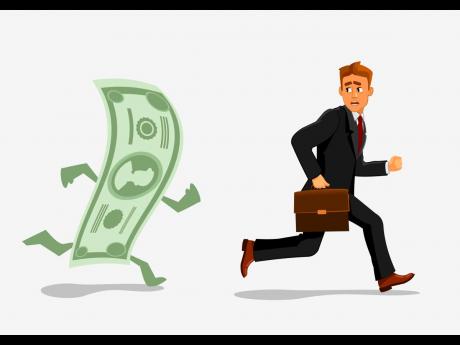Yaneek Page | No business is better than bad business
ADVISORY COLUMN: SMALL BUSINESS
QUESTION: I must congratulate you on the great work you have been doing to help small business. I am a young entrepreneur who has only been in business for 15 months, and your articles and social media posts are like my mentor, which is why I am turning to you for help.
My problem is that since the virus outbreak and the country being shutdown, a lot of customers are owing me. Right now, I have 11 customers who owe me over $1.75 million for work I did months ago. It is now at the point where I can’t pay my own regular bills, and I am stressed out. I have tried collecting my money many times, and I keep getting the run-around. Is it a good idea to use a debt collector or lawyer to get my money? Is it a breach of confidence? Is there another way I could collect what is owed as soon as possible?
– KW, Kingston
BUSINESSWISE: There is a wise saying in business that you might do well to live by: ‘No business is always better than bad business’. The driving principle is that not all customers, opportunities, or partnerships are created equal, and, in fact, some can cause more harm to your business.
If you accept this principle, then it guides who you choose to do business with and the terms of engagement, including credit terms.
In addressing this challenge, you need to clarify whether these debtors are ‘bad business’ or good customers who are navigating a rough patch brought on by COVID-19.
Bad business are customers who, for example, always take an extraordinarily long time to pay, straining your cash flow and forcing you to employ additional resources to chase outstanding amounts; or those who constantly haggle over your prices, always want a discount; or those who don’t appreciate your value.
If your current debtors are ‘bad business’, then you can take a more aggressive approach to debt collection, understanding that such actions will result in the loss of those customers. Aggressive action would likely be initiating legal action if all other avenues have failed.
An important consideration in choosing between a lawyer or a debt collector is that lawyers can file cases in and attend court to pursue cases, and debt collectors cannot.
Lawyers have strict regulatory requirements governing minimum educational requirements for licensing, continuing legal education, fiduciary duties, code of ethics and conduct, and the filing of annual accountant’s reports regarding the handling of client funds.
Litigation is usually costly and will likely take several years before the court resolves the decision if a settlement can’t be reached. Legal costs are substantial, usually payable upfront, and are non-refundable. There is no guarantee that you can recover these costs even if you win.
Debt collectors usually charge no upfront fees but instead take a percentage of what they collect. They are also not regulated and have no minimum standards or accountability bodies to which they can be reported in the event of negligence or improper conduct. Debt collectors have a reputation of being very persistent and even forceful in tracking down, calling, and even visiting debtors, while lawyers tend not to be so.
These are important considerations. As Jamaica is a small country, and also plagued with high levels of violence, it is usually desirable to avoid bad blood where possible.
Now, on the other hand, if your debtors are in fact good customers who are negatively affected by the pandemic, then you may want to take a less adversarial approach in an effort to not just salvage, but actually strengthen the relationship. Remember that business is ultimately about people and relationships, and the way you treat your customers in tough times, when they are at their worst, will be a defining moment in your relationship.
A few deb- collection options that are less adversarial than those outlined above are negotiation of payment terms to clear the debt over time. Therefore, you would switch your approach from calling about the entire amount outstanding to instead meeting with the CEO or chief accounting officer to work out a schedule of payments in instalments, or in the worst-case scenario, a barter agreement or possible write-off of a portion of the debt, depending on the customer’s circumstance and other considerations.
Another option may be to pursue alternative dispute resolution such as engaging a mediator, or the Dispute Resolution Foundation of Jamaica, to try to arrive at an amicable settlement.
Whatever you decide, pursuing monies owed within the confines of the law and your contract with the customer is not a breach of confidence. It is critical to maintain positive cash flows and viability, especially at this time.
Indeed, it is clear that you need to urgently review your credit terms to avoid the likelihood of such large debts accruing in the future while balancing the needs of your customers.
Good luck!
Yaneek Page is the programme lead for Market Entry USA, a certified trainer in entrepreneurship, and creator and executive producer of The Innovators and Let’s Make Peace TV series.

